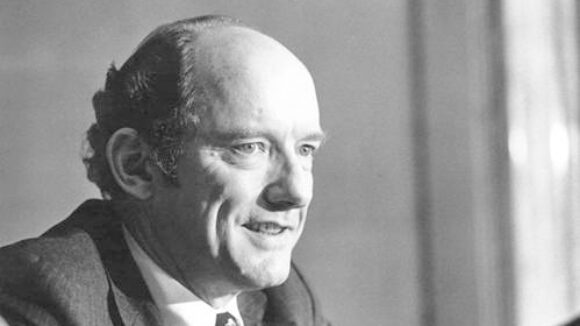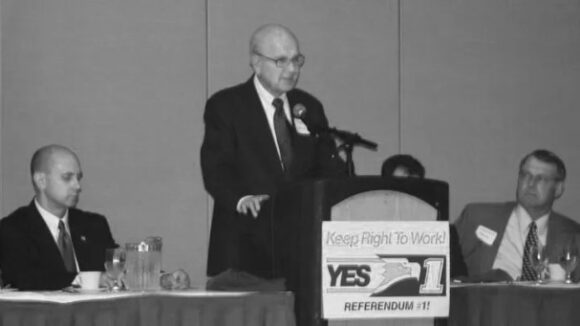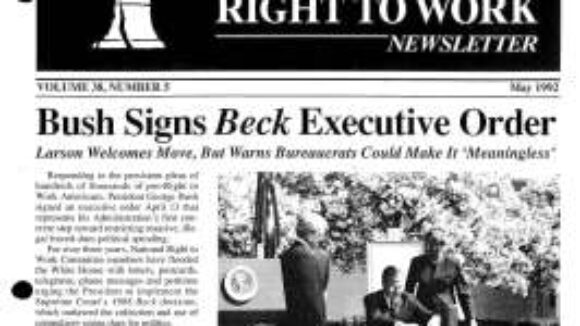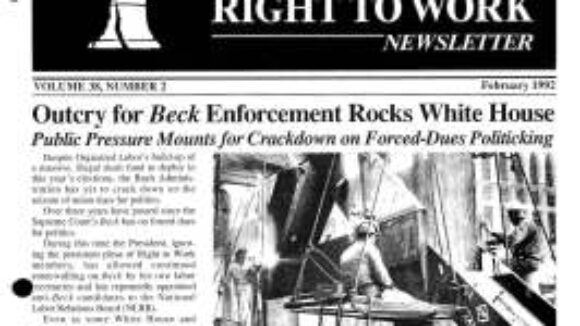Senator 'Stood Behind' Right to Work Principle
Regardless of who was in the White House, Sen. Wallop energetically defended the Right to Work. Credit: Los Angeles Times Malcolm Wallop Opposed Compulsory Unionism, Without Fear or Favor (Source: October 2011 NRTWC Newsletter) Thirty-five years ago this August, a staunchly pro-Right to Work, but obscure GOP state senator named Malcolm Wallop was running 34 points behind in his challenge to Wyoming three-term U.S. Sen. Gale McGee, a Big Labor Democrat. Respected pundits didn't expect the race ever to get close. But less than three months later, after an extensive National Right to Work Committee campaign had alerted Wyoming citizens about the union-boss power grabs Mr. McGee could help ram through Congress if reelected, Mr. Wallop soundly defeated the incumbent. As even the Washington Post noticed from afar at the time, the McGee-Wallop race "brought unions and right-to-work groups into direct battle." Former Right to Work President: Sen. Wallop Kept His Promises to Constituents "In a letter he sent out in late August 1976 to Wyoming citizens who had inquired about his stance on compulsory unionism, Malcolm Wallop said forthrightly: 'I believe in the work of the [National Right to Work] Committee,'" noted former Committee President Reed Larson.



